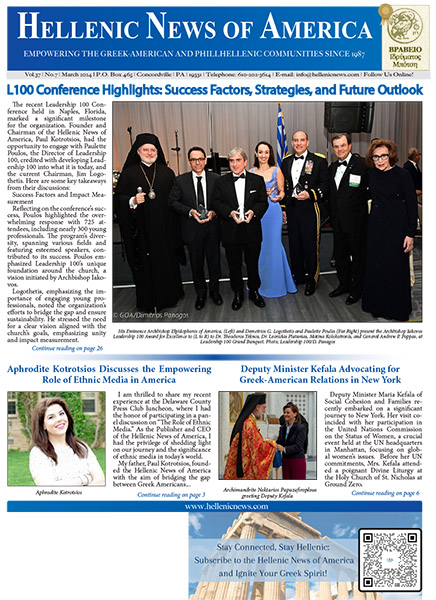The lobby of Philadelphia’s Wilma Theater began to fill with the capacity audience for the premiere of Theodoros Terzopoulos’ production of Sophocles’ Antigone on a mild October night. It marked the second collaboration between the renowned Greek director and his Attis Theatre troupe with the Wilma, which had introduced itself to Philadelphia audiences with its brilliantly innovative Ajax at the Wilma in 2013.
As the lights rose on Antigone, an actor at the rear center of the stage spoke a rapid monologue in an unfamiliar tongue: ancient Greek. The meaning of his words were secondary to the hypnotic movement of his lips and the sense of urgency they communicated. Above his head, a brightly lit clever was suspended like a question mark. A premonition? A threat? We waited in suspense as the chorus and principals came onstage, barefoot and bare to the waist in an impressively disciplined choreography. Seven men and two women: the women were Antigone and her sister, Ismene. Some of the performers were Greek, and some were locally recruited from the Philadelphia theater community. The Greek performers spoke the original text, and the Americans English. Two languages, then, on one stage: but Antigone is a play that speaks every language, and I took that to be Terzopoulos’ point. It speaks particularly to us, as the first play to present a female hero. As Professor Marianne McDonald, who provided the English translation, comments:
Antigone is the first female character in drama to be a hero in the full sense of the word. She is the first conscientious objector. Both Antigone and Creon mourn the loss of those they love: one defends the laws of the gods, and the other the laws of the state.
MacDonald suggests that a compromise is possible, but the tragedy of the play is that neither protagonist will yield. Terzopoulos unfolds the inevitable result in a grave and ritual style. Through intense and dedicated rehearsal, he was able to weld the bodies of his actors, Greek and American, into a single dynamic instrument. The Philadelphia actors were completely new to him. He chose them after a two-week series of seminars and workshops in January of this year, followed by a seven weeks of training and rehearsal. “We must break fixed ideas and rules about performing tragedy onstage,” Terzopoulos told me. “These imprison us. We must construct new images, new forms of expression. We must make new bodies, too, that can bring the text to life for us.” His Antigone was a stunning realization of that project. Particularly striking was the work of the African-American actress Jennifer Kidwell as Antigone, but the entire ensemble was superb. Mention must also be made of the magical score of the Attis Theatre’s resident composer, Panayiotis Velianitis, which contributed greatly to the overall effect.
Theodoros Terzopoulos was born in the village of Makrygialos, in the Pieria region of northern Greece. He founded the Attis Theatre in Delphi in 1985, with the aim of freshly researched presentations of Greek tragedy as well as of other significant works of the international repertoire. “Attis,” he explains, is the ancient Phrygian term for Dionysos, the Greek god of passion and energy. The Attis Theatre has presented some 1,850 performances worldwide in its thirty-year existence. It collaborates with international festivals and partners with local theater groups, as with the Wilma in Philadelphia, which serve as co-producers and production resources. The aim is to achieve multilingual and multicultural performances, thus making ancient tragedy accessible to a wide variety of audiences while preserving its spirit and integrity. Thus far, Terzopoulos has organized some 300 workshops and fifty conferences in theater theory and practice, most of them in conjunction with leading drama academies. The work of the Attis Theatre and the principles that inform it have been documented in several books that, exemplary of their kind, have been taught at thirty universities in Greece and abroad.
When I first encountered Terzopoulos’ work through his production of Ajax, I was captivated, terrified, and elated. Meeting him in person and being able to discuss his approach to Greek drama and theater in general has been an equally extraordinary experience. He is, for all his mild and gracious manner, a Dionysos himself, who channels the force and power of ancient tragedy anew for us through his art.







